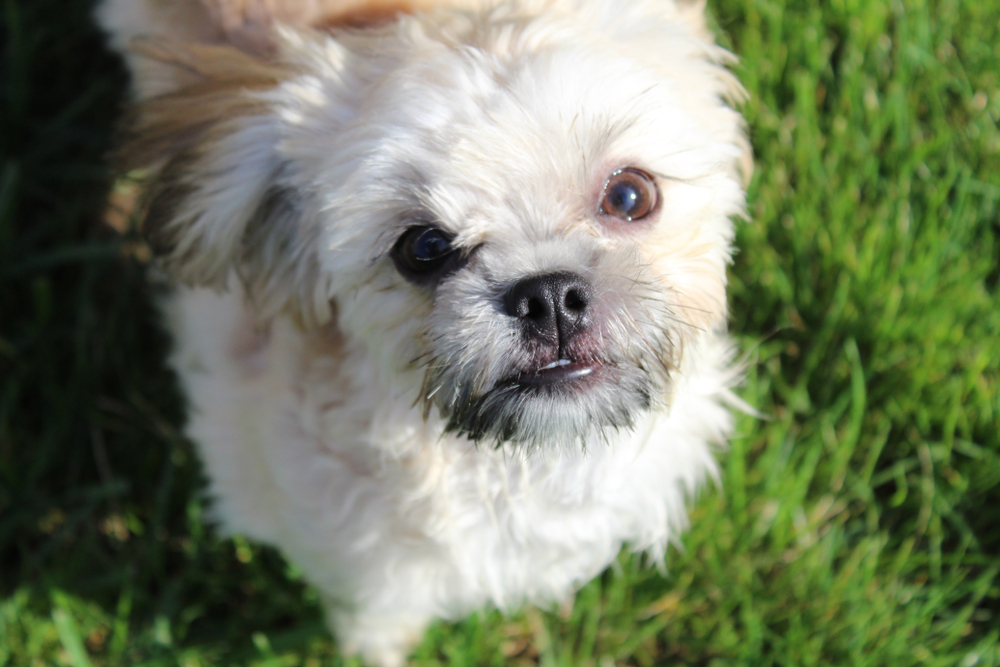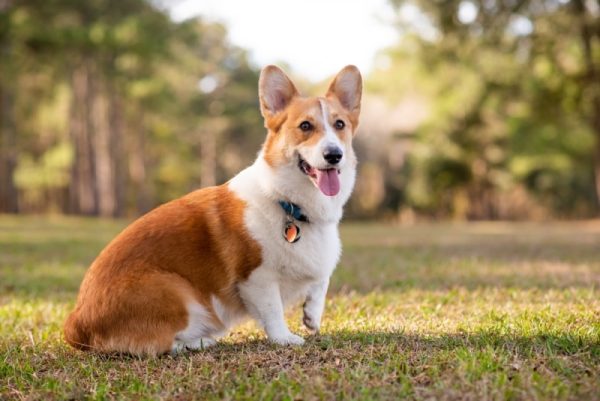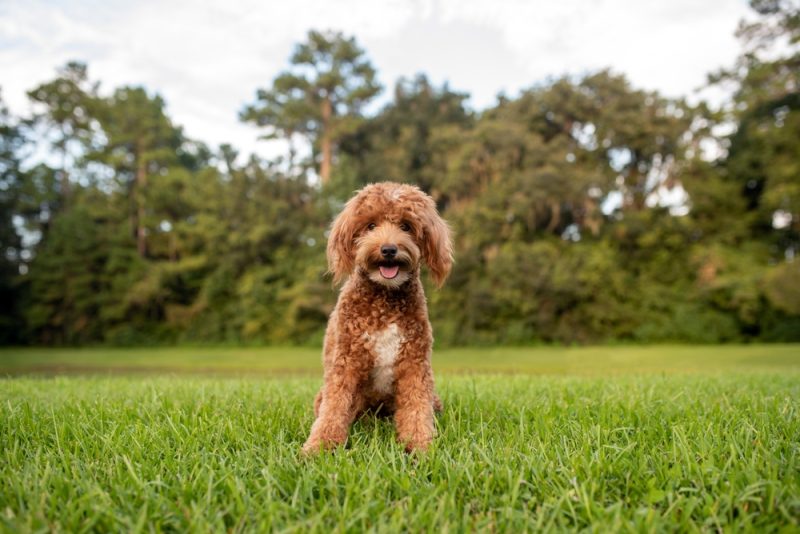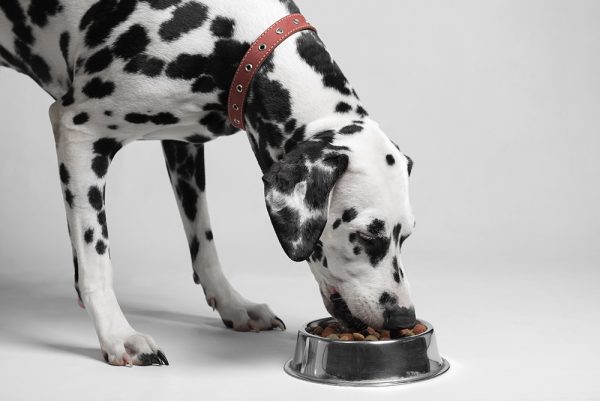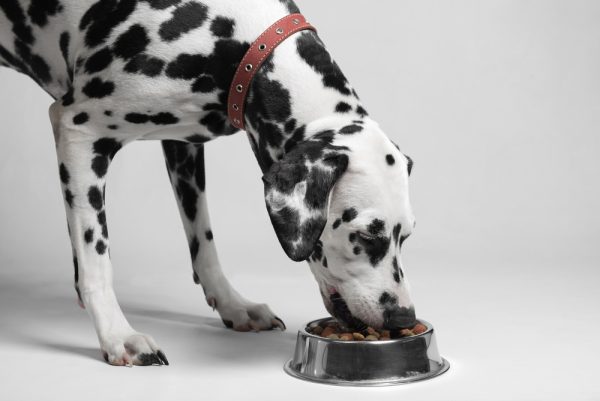In this article
View 8 More +Do you want a small dog that’s calm, quiet, and downright adorable? If so, the Mi-Ki (Mee-Kee) is calling your name! They’re some of the smallest dogs you can find, but they have some of the biggest and most loving personalities.
Whether you haven’t heard of the Mi-Ki before or you want to learn a bit more about these pups, you’ve come to the right place!
Breed Overview
Height:
7–9 inches
Weight:
6–10 pounds
Lifespan:
12–15 years
Colors:
Everything but merle
Suitable for:
Multi-pet families, homes with children, people with mild pet allergies, and people who live in smaller spaces
Temperament:
Friendly, affectionate, playful, easy to train
The Mi-Ki originated as a crossbreed between Papillon, Shih Tzu, Maltese, Yorkshire Terrier, and Japanese Chin, but modern-day Mi-Kis are their own breed, pulling in some of the best characteristics from each of their parent breeds.
They’re loving, hypoallergenic, calm, and extremely affectionate. They’re some of the best companion dogs on the planet, and because of their smaller size, it’s easier to care for them than many other larger pups.
Mi-Ki Dog Characteristics

Mi-Ki Puppies
https://www.instagram.com/p/C2APU7xuywH/?utm_source=ig_web_copy_link&igsh=MzRlODBiNWFlZA==
As an extremely rare dog breed, if you’re looking to get a Mi-Ki, you’ll need to take a little extra time to find a breeder. It’s highly unlikely you’ll just stumble upon these pups, but while it’s rare, it’s not so rare that you won’t be able to find one.
When finding a breeder, do your research. Use a breeder that offers a health guarantee, provides references, and raises the puppies in their home. Not only does this help ensure you get a happy and well-adjusted dog, but it also helps ensure you’re not accidentally supporting a puppy mill.
After you find a breeder and bring a puppy home, you should be able to expect a loving and well-adjusted pet. And while they’re small when they’re full-grown, they’re even smaller when they’re puppies, often weighing just about 3.5 pounds when they’re young. They quickly put on weight from there, but they still max out under 10 pounds.

Temperament & Intelligence of the Mi-Ki Dog
The Mi-Ki is a sweet and loving dog, and while they might have a small stature, they have huge hearts. They’re incredibly affectionate and playful, always looking for someone to cuddle and play with, and they tend to get along with everyone in the home, whether it’s children or other pets.
They’re not the smartest dogs in the world, but they’re far from dumb, settling in right about average in overall intelligence. And when you factor in just how eager they are to please you, their overall intelligence is never really a problem.
Are These Dogs Good for Families? 👪
The Mi-Ki can be a phenomenal family dog due to their loving temperament toward just about everyone. However, while they typically get along with most people, you still need to be careful with them around smaller children.
Smaller children often stumble and fall, and if they happen to fall on a Mi-Ki, it could hurt them, or the Mi-Ki might try to defend themselves by biting.
Does This Breed Get Along With Other Pets? 🐶 😽
Generally, the Mi-Ki gets along fine with other pets, but keep in mind that each dog has its own personality, so there’s no guarantee that they’ll get along with other animals in your home.
Early socialization is critical if you want your Mi-Ki to get along with other pets, and if you socialize them early and often, it’s highly unlikely that you’ll have issues with them around other pets. However, keep in mind that they are very small dogs, and this can create problems if a larger pet isn’t careful around them.

Things to Know When Owning a Mi-Ki Dog
While owning a Mi-Ki isn’t all that different from owning many other types of dogs, you’ll still want to know exactly what you’re getting yourself into before you bring one home. With that in mind, we’ve reviewed the basics for you.
Food & Diet Requirements 🦴
As a small dog that doesn’t get larger than 10 pounds, it doesn’t take much food to meet a Mi-Ki’s nutritional needs. Stick with a high-quality diet. For dry kibble, this should be relatively cheap every month. For wet food, you can expect to spend a bit more, and if you want a fresh food diet for your Mi-Ki, you can expect to spend even more. Whatever you plan to go with, ensure that you speak to your vet to ensure you’re giving them the appropriate nutrition for their breed and size.
Exercise 🐕
While a Mi-Ki can certainly have their moments of high energy, because of their smaller size, it’s usually pretty easy to meet their exercise needs. Even though you can likely meet their exercise requirements with a few games of fetch in your home, it’s still a good idea to get them out for one or two short walks every day. They don’t need to be super long but aim to take them out for about a half mile each day, either in one longer walk or two shorter walks.
Training 🎾
Every dog can be a little bit stubborn, but with proper training, that usually isn’t a big problem with a Mi-Ki. These dogs are extremely loving and are always trying to please their owners, making them reasonably easy to train as long as you meet all their other needs and stick to a consistent routine.
Aim for one training session a day that lasts about 15 minutes, and ensure it’s after you’ve met some of their daily exercise needs so that they’re a bit more tired out and can more easily focus.
Grooming ✂️
One of the perks of a Mi-Ki is that they’re as hypoallergenic as any pet can be, and they don’t shed much. You will need to brush them out daily, though, and you’ll want to take them for a haircut about once a month.
Moreover, you need to brush their teeth once a day to keep up with their oral hygiene and prevent future dental problems. Finally, if you keep up with their daily walks, you shouldn’t need to worry about trimming their nails all that much, but it is something you’ll need to keep an eye on.
Health and Conditions 🏥
While a Mi-Ki is generally a pretty healthy dog, they are prone to a few common health problems you’ll need to keep an eye out for. Getting your pet from a reputable breeder can help mitigate these risks, but you’ll still want to keep an eye out for the following conditions.
- Dental problems
- Patellar luxation
- Cataracts
- Brachycephalic syndrome
- Progressive retinal atrophy
- Von Willebrand’s disease
- Hemophilia
Male vs. Female
Generally, there isn’t much difference between male and female dogs, and the Mi-Ki is no exception to this rule. However, males do tend to be a little bit larger, but for a Mi-Ki, that doesn’t mean much!
Males tend to push closer to the 10-pound mark, while females often top out at around 8 pounds. Either way, they should stay under 10 pounds, and unless you have two of them side by side, you likely won’t even notice the difference

3 Little-Known Facts About the Mi-Ki Dog
1. The UKC Recognizes Them but the AKC Does Not
Not every dog registry is on the same page when it comes to certain dog breeds, and the Mi-Ki really highlights that. While the United Kennel Club (UKC) officially recognized the breed in 2009, the American Kennel Club (AKC) has yet to recognize the breed. But since they’re starting to gain formal recognition, it’s certainly possible the AKC will officially recognize the Mi-Ki at some point in the future.
2. They’re a Newer Breed
The Mi-Ki is a mix of quite a few different breeds, which came about in the 1980s. This means the breed is still less than 50 years old, which is hundreds of years newer than many other dog breeds.
3. Breeders Actively Seek Out Calm Traits
Some small dogs are constantly moving and making noise, but not the Mi-Ki. This isn’t an accident, as breeders actively seek out calmer pups to breed. This dog is all about calm companionship, making them the perfect pet for many people.

Final Thoughts
Whether you’re looking to get a Mi-Ki for yourself or just want to learn a little more about this rare breed, now you know that they’re adorable and amazing pets. What’s even more impressive is that while they’re super cute, it’s their amazing personalities that really make them shine.
Once you get to meet a Mi-Ki for yourself, we’re sure you’re going to fall head over heels in love with these beautiful dogs.
Featured Image Credit: focus.n.develop, Shutterstock
